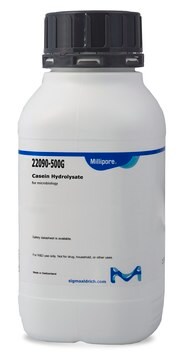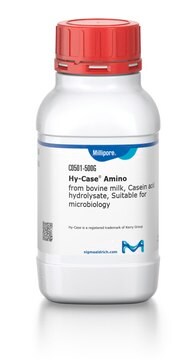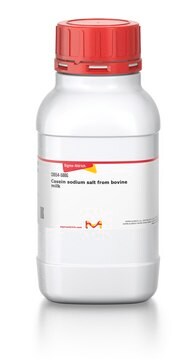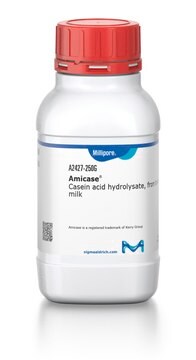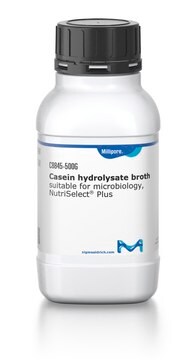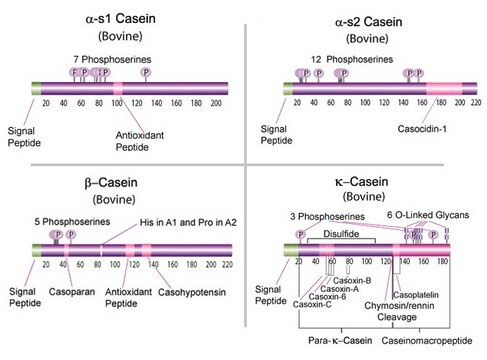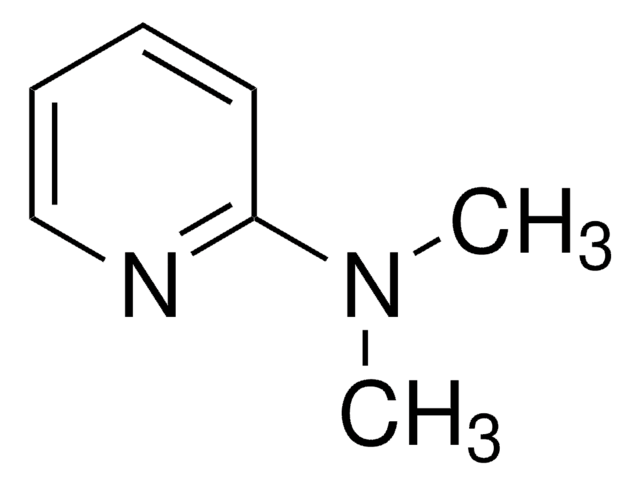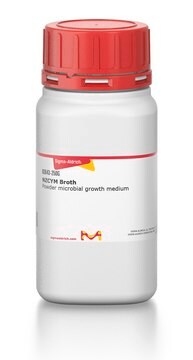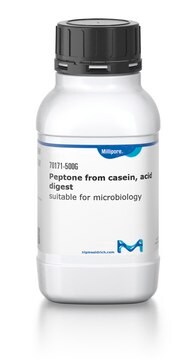1.02245
Casein Peptone
Acid digest of casein from bovine milk, 7.0-8.5% amino-nitrogen basis, suitable for biotechnology and microbiology
Synonyme(s) :
Casein hydrolysate, Casein peptone, hydrolyzed casein, enzymatic casein hydrolysate,
About This Item
Produits recommandés
Nom du produit
Casein hydrolysate, acid hydrolyzed, suitable for microbiology
Source biologique
bovine milk
Niveau de qualité
Essai
7.0-8.5% amino-nitrogen basis (purity)
Forme
powder
Durée de conservation
limited shelf life, expiry date on the label
Conditionnement
pkg of 5 kg
pkg of 500 g
Conditions de stockage
(Tightly closed)
pH
4.7-5.7 (20 °C, 50 g/L in H2O)
Solubilité
310 g/L
Masse volumique apparente
600 kg/m3
Application(s)
microbiology
Température de stockage
15-25°C
Catégories apparentées
Description générale
Application
Remarque sur l'analyse
Identity (NIR): passes test
Total nitrogen (N) (Kjeldahl): 7.0 - 8.5 %
pH-value (5 %; water): 4.7 - 7.0
Amino nitrogen (as N): 5.0 - 6.5 %
Sulfated ash (800 °C): ≤ 58 %
Loss on Drying (105°C): ≤ 6.0 %
Suitability for microbiology: passes test
Code de la classe de stockage
11 - Combustible Solids
Classe de danger pour l'eau (WGK)
WGK 1
Point d'éclair (°F)
Not applicable
Point d'éclair (°C)
Not applicable
Certificats d'analyse (COA)
Recherchez un Certificats d'analyse (COA) en saisissant le numéro de lot du produit. Les numéros de lot figurent sur l'étiquette du produit après les mots "Lot" ou "Batch".
Déjà en possession de ce produit ?
Retrouvez la documentation relative aux produits que vous avez récemment achetés dans la Bibliothèque de documents.
Les clients ont également consulté
Notre équipe de scientifiques dispose d'une expérience dans tous les secteurs de la recherche, notamment en sciences de la vie, science des matériaux, synthèse chimique, chromatographie, analyse et dans de nombreux autres domaines..
Contacter notre Service technique